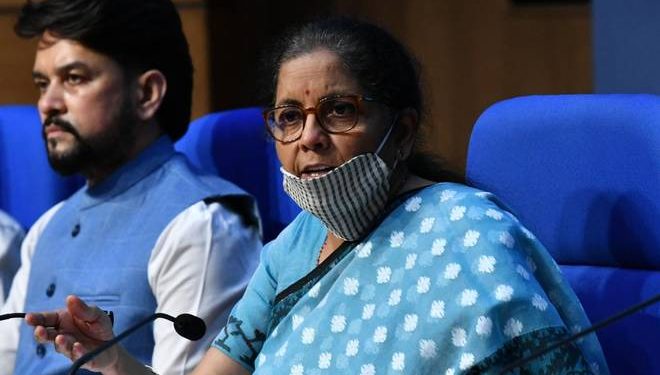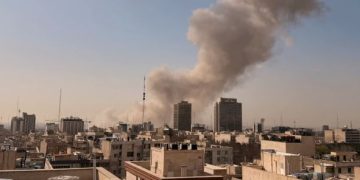Jayati Ghosh
Among the many inequalities revealed by the COVID-19 pandemic, one of the most striking is the dramatic divergence in the government’s fiscal responses. Economic activity has collapsed worldwide as a result of the lockdown measures to contain the coronavirus. But while some developed countries have been able to deploy fiscal stimulus on an unprecedented scale, most have not.
Since March, the US government has announced additional spend amounting to over 14 per cent of the GDP. In Japan, the figure is over 21 per cent, compared to nearly 10 per cent in Australia and around 8.4 per cent in Canada. In Europe, lack of agreement on a strong joint stimulus effort has led to more varied responses, from additional spending ranging from 1.4 per cent of the GDP in Italy and 1.6 per cent in Spain to 9 per cent in Austria, with Germany and France in the middle, at 4.9 per cent and 5 per cent respectively. Rigid EU budget rules continue to limit government spending in precisely those countries that need fiscal stimulus the most.
Meanwhile, monetary-policy responses have expanded the fiscal capacity available at sub-national levels of government in many advanced economies. By cutting interest rates, buying up municipal and provincial bonds, and introducing new lending facilities for specific sectors and enterprises, the US Federal Reserve and other major central banks have used all means at their disposal to keep borrowing costs low, and to maintain public agencies’ liquidity.
By contrast, the fiscal response across most developing economies has been underwhelming, but not because the economic conditions facing these governments are any less challenging. If anything, the lockdown measures and disruption of global trade and investment have already inflicted even greater damage on developing and emerging economies than on the rich world.
In India, for example, it is estimated that 122 million people lost their jobs in April. Worse, despite lockdown measures, the number of Covid-19 cases in the country continued to rise rapidly. Declining remittances and sharply falling export and tourism revenues have battered many other developing economies as well, even those with less stringent lockdowns.
Yet, despite large-scale job losses and declining household incomes, there has been relatively little fiscal response. While Prime Minister Narendra Modi just announced a package amounting to 10 per cent of the GDP, this includes earlier allocations and the expected impact of monetary measures. Additional public spending will comprise only a miniscule fraction of the total amount.
These differences are evident even within the G20. By the end of April, new public spending by the group’s emerging economies averaged around 3 per cent of the GDP, compared to 11.6 per cent among the advanced economies. And even within that cohort, there was wide variation, with South Africa increasing spending to 10 per cent of the GDP, while India’s new public spending was less than 1 per cent. Not surprisingly, outside of the G20, low-income countries have struggled to marshal even tiny rescue packages, let alone anything sufficient to combat the virus and avert economic collapse.
Much of this difference in fiscal responses across countries can be explained by longstanding systemic inequalities in the global economy, in which developing countries must borrow in internationally accepted reserve currencies. As a result, they simply do not have the fiscal freedom enjoyed by countries that issue such currencies. That’s why a new issue of the International Monetary Fund’s reserve asset, Special Drawing Rights, has become such an urgent priority.
After all, the widespread cessation of economic activity means that tax revenues are plummeting just when governments need to increase spending. For governments of developed countries that can borrow directly from the central bank, this isn’t really a problem. For most developing countries, the calculus is more difficult. Even those without immediate debt-repayment concerns are showing little inclination to raise public spending to anything near the levels needed to prevent a broader economic collapse.
The reason is simple: most of these countries fear capital flight. Already, more than $100billion has poured out of developing countries since the pandemic began. Aside from debt denominated in foreign currencies more than a quarter of developing countries’ local-currency debt is held by foreigners, and liberalized capital-account rules in many countries have made it easier for domestic residents to shift their funds abroad. All of this leaves developing countries exceedingly vulnerable, so much so that the fear of financial markets acts as a major constraint on even the most obvious and urgently needed policies.
In India, for example, a top finance ministry adviser justified the pathetically small size of the government’s stimulus package by raising concerns about the country’s sovereign rating. Never mind that an inadequate response increases the likelihood of a major economic collapse in which hundreds of millions of Indians will face poverty and hunger. Equally revealing, in South Africa, the deputy finance minister created a controversy for making the perfectly reasonable suggestion that the central bank should buy government bonds directly.
In this self-imposed climate of neoliberal fear, the very idea of instituting capital controls is dismissed as crazy, on the grounds that it would frighten away foreign investors. Yet the economic fallout from the pandemic has made a substantial increase in public spending essential for most developing economies. Besides, how many foreign investors (other than those interested in snatching up assets on the cheap) will be attracted by economies that have been left completely devastated in the absence of fiscal countermeasures?
Well before the pandemic arrived, it was evident that the financialization of the global economy was fueling massive levels of inequality and unnecessary economic volatility. In this unprecedented crisis, the need to rein it in has literally become a matter of life or death.
The writer is Professor of Economics at Jawaharlal Nehru University. © Project Syndicate, 2020.






































